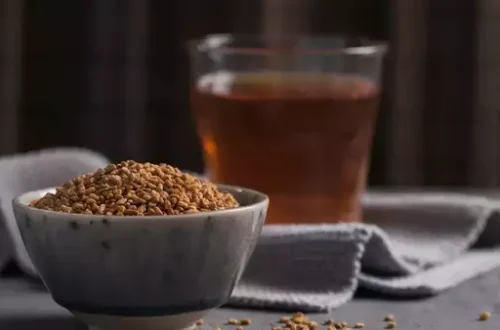Discover the ancient wisdom of Ayurveda in managing gallstones, known as “Pittashmari.” Learn about symptoms, Ayurvedic treatment options, and natural remedies for relief and prevention. we delve into the realm of Ayurveda to explore the comprehensive approach it offers for addressing gallstones. Understanding the symptoms and uncovering the time-tested treatments of this condition is crucial for those seeking natural and holistic solutions.
1. What are Gallstones?
Gallstones are hardened deposits that form in the gallbladder, an organ responsible for storing bile. They can range in size from tiny grains to larger, more problematic stones.
2. Symptoms of Gallstones:

Recognizing the symptoms of gallstones is essential for timely intervention. Common signs include severe abdominal pain, nausea, vomiting, and bloating, especially after consuming fatty or greasy foods.
1. Abdominal Pain:

The pain caused by gallstones is often described as intense and colicky, with sudden waves of discomfort gripping the upper right side or middle of the abdomen. Some individuals may experience a constant ache that worsens after consuming heavy or fatty meals. The pain can last from minutes to several hours, and finding a comfortable position may become challenging during an episode.
2. Back Pain:

Gallstone pain can extend to the back, between the shoulder blades. This referred pain is a result of the gallbladder’s proximity to the back, and it may add to the overall discomfort experienced during an episode. The back pain may be mild or severe, depending on the size and location of the gallstones.
3. Nausea and Vomiting:

Nausea is a common accompaniment to gallstone attacks. The intense pain and disruption in the digestive process can trigger feelings of queasiness, which may lead to vomiting in some cases. The vomiting may offer temporary relief, but it does not resolve the underlying issue of gallstones.
4. Bloating and Gas:

Gallstones can interfere with the normal flow of bile, leading to bloating and a sensation of fullness in the abdomen. This bloating can be uncomfortable and may exacerbate other symptoms, such as abdominal pain and indigestion.
5. Indigestion:
The presence of gallstones can cause indigestion or dyspepsia, characterized by a burning sensation or discomfort in the upper abdomen. This can be particularly noticeable after meals, especially those high in fat. Indigestion may be accompanied by feelings of heaviness or fullness in the stomach
3. Ayurvedic Treatment Options:

- Herbal Remedies: Ayurvedic herbs like Turmeric, Guduchi, and Varun aid in dissolving gallstones and reducing inflammation.
- Dietary Recommendations: Emphasize a low-fat, high-fiber diet, incorporating bitter vegetables like bitter gourd and dandelion greens.
- Panchakarma: This Ayurvedic cleansing technique can help detoxify the body and balance the doshas, promoting overall well-being.
4. Lifestyle Modifications:

Ayurveda advocates a holistic approach to managing gallstones, encompassing lifestyle adjustments that can significantly contribute to overall well-being and gallstone prevention. Incorporating the following practices into daily life can make a notable difference
- Regular Exercise: Engaging in regular physical activity not only helps maintain a healthy weight but also promotes proper digestion and supports the body’s natural detoxification processes. Activities like brisk walking, yoga, or swimming can be beneficial for gallstone management.
- Stress Reduction Techniques: Chronic stress can disrupt the body’s balance and potentially trigger gallstone-related symptoms. Adopting stress-reduction techniques, such as meditation, deep breathing exercises, or mindfulness practices, can help alleviate stress and promote relaxation.
- Proper Hydration: Staying well-hydrated is essential for preventing gallstones. Drinking an adequate amount of water throughout the day ensures the proper flow of bile and prevents the formation of concentrated bile, which can contribute to stone formation.
5. Prevention:
Preventing gallstones involves adopting a balanced diet, maintaining a healthy weight, and avoiding crash diets or extreme fasting.Preventing gallstones is a proactive approach to maintaining gallbladder health and overall well-being. By making thoughtful lifestyle choices, individuals can reduce their risk of developing gallstones
Conclusion: Embracing Ayurvedic principles can provide a profound approach to addressing gallstones. By recognizing the symptoms and incorporating Ayurvedic treatments into one’s lifestyle, individuals can find relief and support the body’s natural healing abilities. Remember to consult an experienced Ayurvedic practitioner for personalized guidance on managing gallstones effectively.
If you have any queries related to medical health, consult Subhash Goyal or his team members on this given no +91 99150 72372, +91 99150 99575, +918283060000





